Sustainable Development
at STELLENBOSCH UNIVERSITY
SU Campuses
Stellenbosch University consists of one main campus, in Stellenbosch, and four satellite campuses; namely Bellville Park, Saldanha, Tygerberg and Worcester.
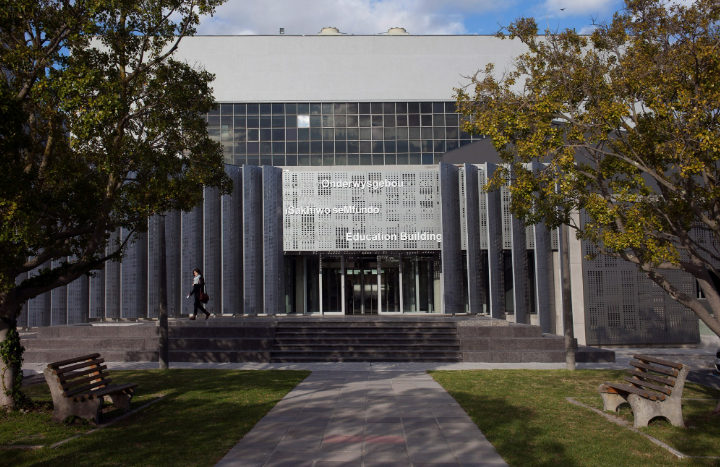
Our Buildings
Stellenbosch University is committed to ensuring that all new building is done in a way that promotes sustainability. Construction on the Biomedical Research Institute started in 2019 and is set to be completed by the end of 2022. This construction project has truly taken sustainability to heart. Natural light and greywater are being used to decrease the water and energy footprint of the building. The project is also including sustainability in its material selection, emissions, waste management, ventilation and acoustics. The building has received four star certification.
The new Jan Mouton Learning Centre opened in 2021. The building has a greywater system serving the ablutions to decrease water use in the building in the long term. The building also harvests rain and groundwater for reuse. Processes are underway to have the building four star certified.
Twenty-nine Stellenbosch University buildings have been given energy certifications so far, with more to follow in the next few years.
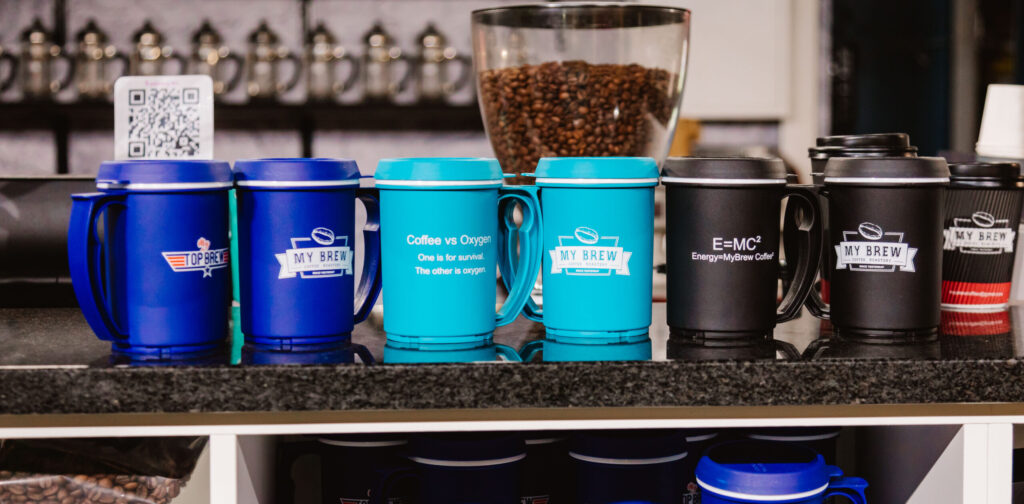
Campus Greening
Stellenbosch University students are encouraged to contribute to sustainability by sorting their waste via the three-bin system on campus. They are also encouraged to carry reusable water bottles and travel coffee mugs for use on campus.
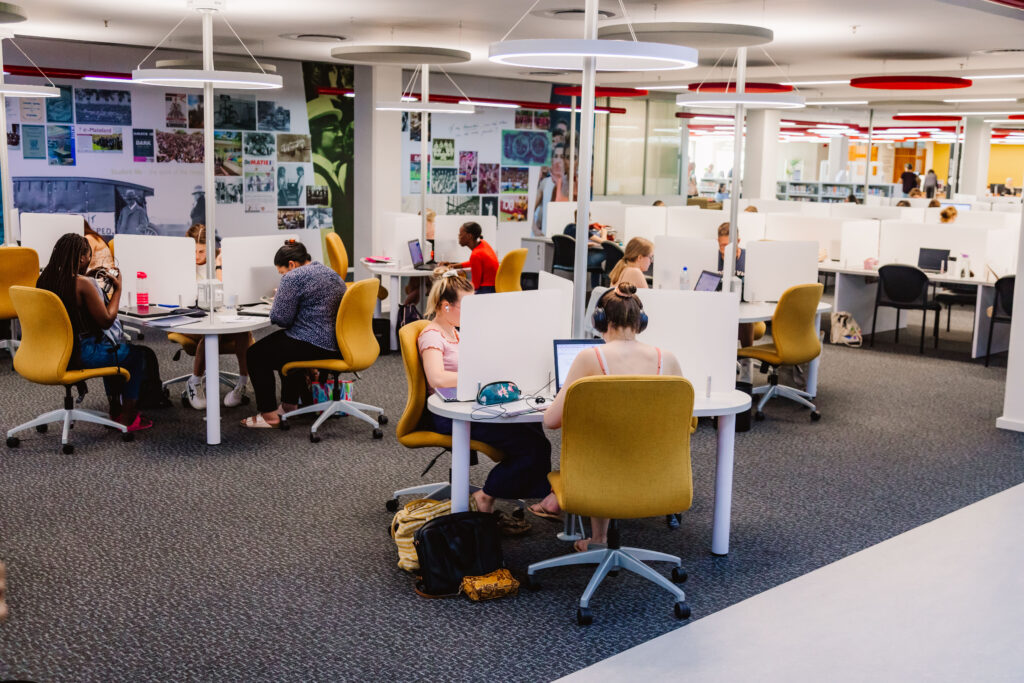
Our Residences
Stellenbosch University can house around 6 500 students among its 31 residences and other University accommodation on the Stellenbosch campus. Sustainability initiatives within residences include the installation of water-saving taps and showers. During Earth Day 2021 (22 April), new vegetable gardens were planted at Stellenbosch University residences (Comms Report).
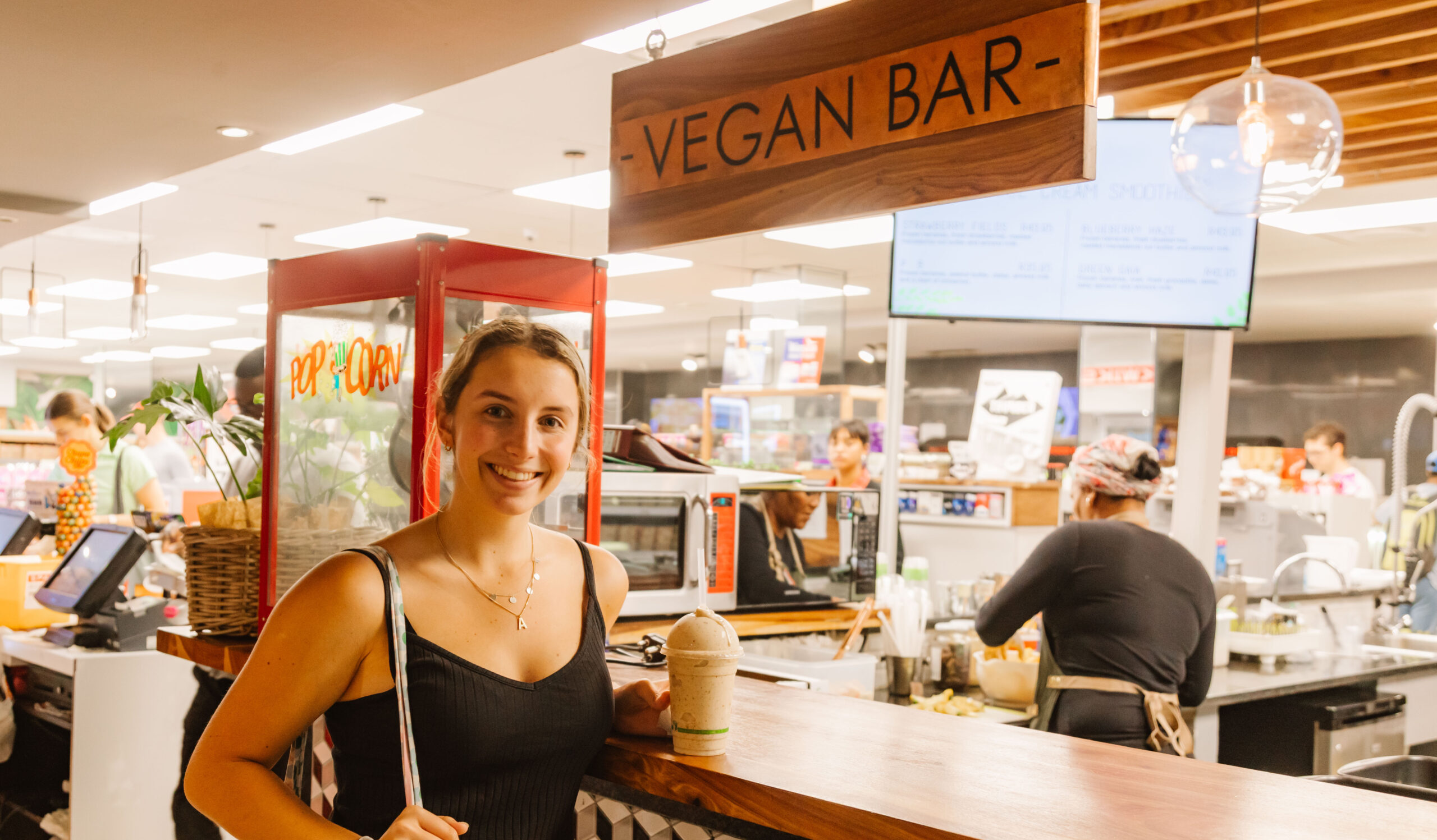
Sustainable and Affordable Food Choices
Stellenbosch University is committed to ensuring that all students have access to health and affordable food. Students who live in residences can order meals at a reasonable price, including vegan, vegetarian and halaal options from their cafeterias. The Neelsie Student Centre is home to many food vendors that provide plant-based meals such as vegetarian and vegan options.
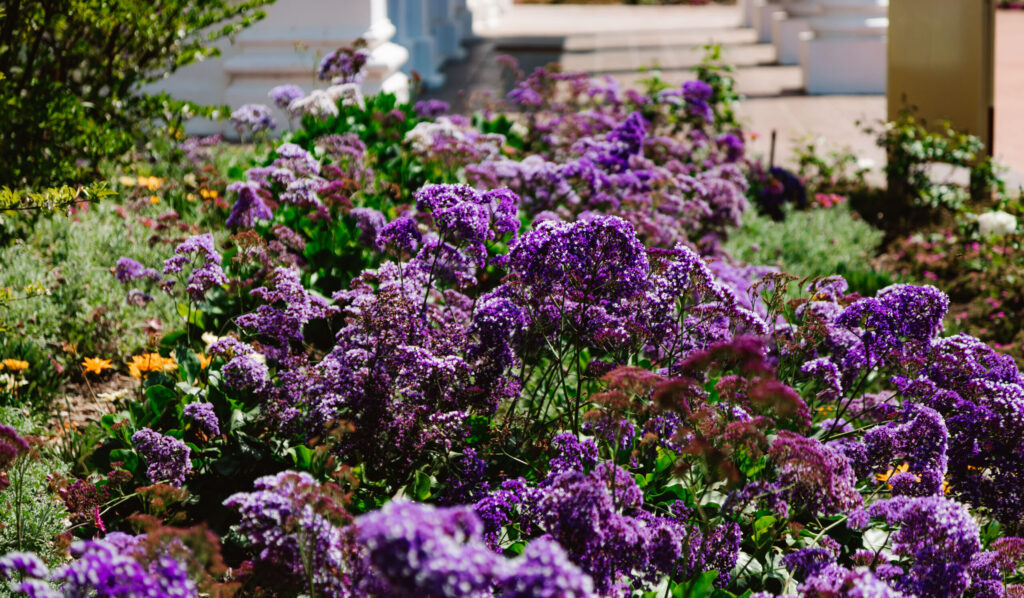
Biodiversity
The University has specific goals regarding biodiversity and has implemented many programmes thus far, including continuously eradicating invasive plant species on all campuses, planting indigenous plant species on campuses and erecting owl and bat boxes on campus. The University acts in partnership with the Department of Forestry and Wood Science to conserve the mountain region at Stellenbosch campus. The University also includes water conservation in its landscaping. Water-hardy plant species are included in gardens that are designed to retain water. Wherever possible, water-permeable paving and grass is used so that rainwater can penetrate the soil and replenish the underground water sources.
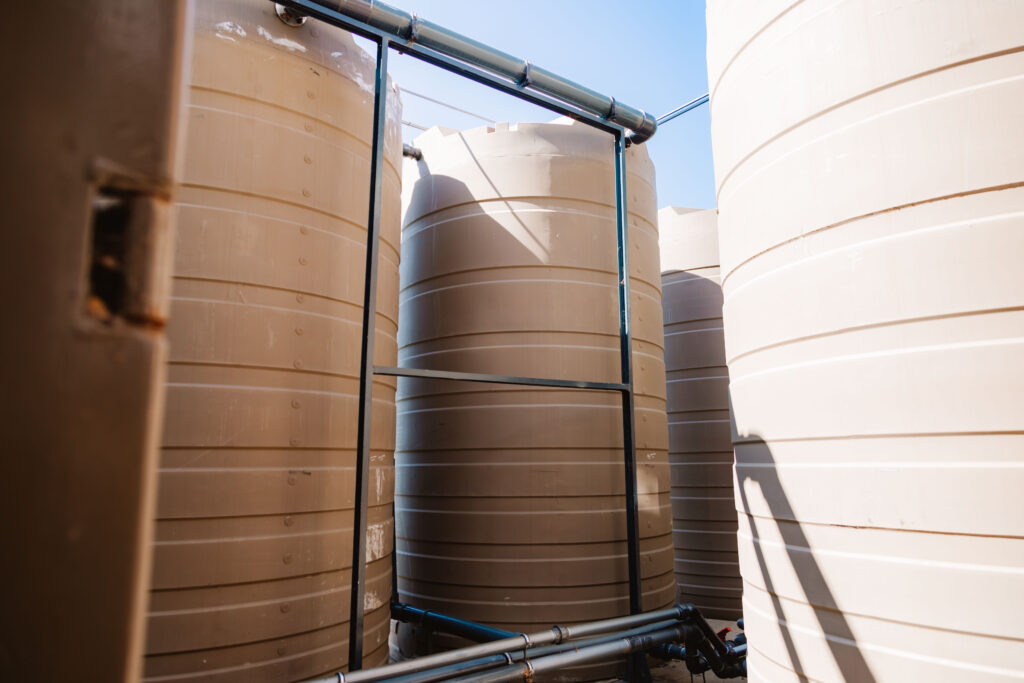
Water Use
After the drought of 2017, Stellenbosch University adopted an integrated approach to water use to be more resilient in the face of possible future droughts. The University adopted the Water Optimisation Strategy to reduce water usage on campus. These included the installation of aerators on all taps, more efficient shower heads on all campuses and the replacement of all toilet cisterns across campuses. Smart metering, moisture probes and a fight against water leaks also helped reduce the overall water consumption. The University installed a new grey water system that diverts water from showers and laundries, filters the water, and redistributes it to toilets across all campuses, with the excess being used to irrigate University gardens. On average 1.2 million litres of grey water are recycled each month. To supplement the water supply, the University installed tanks to collect rainwater, made use of boreholes and started capturing ground water from several buildings.Through these measures, the University has decreased the amount of water used from the municipality by half.
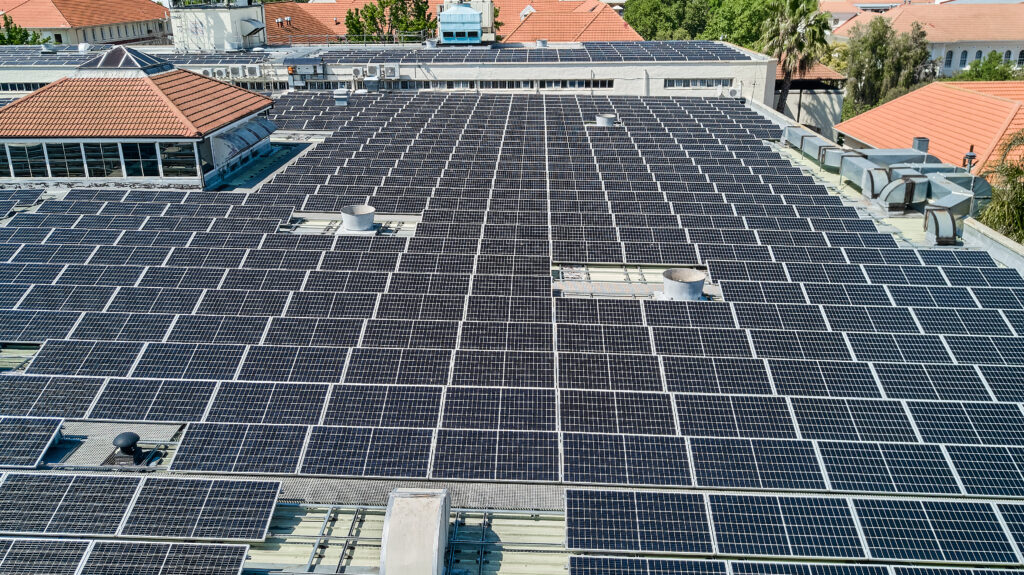
Energy Use
The University has implemented several strategies to reduce electricity use and move to renewable sources of electricity. Photovoltaic panels that have been installed on the roof of the Neelsie Student Centre are supplying a third of the electricity used in the building. Installations will follow on all Stellenbosch University campuses over the next few years. Energy-saving LED light bulbs and motion-sensing lights are being installed to reduce energy usage and a heating, ventilation and air conditioning precinct plant has been installed on Stellenbosch campus.
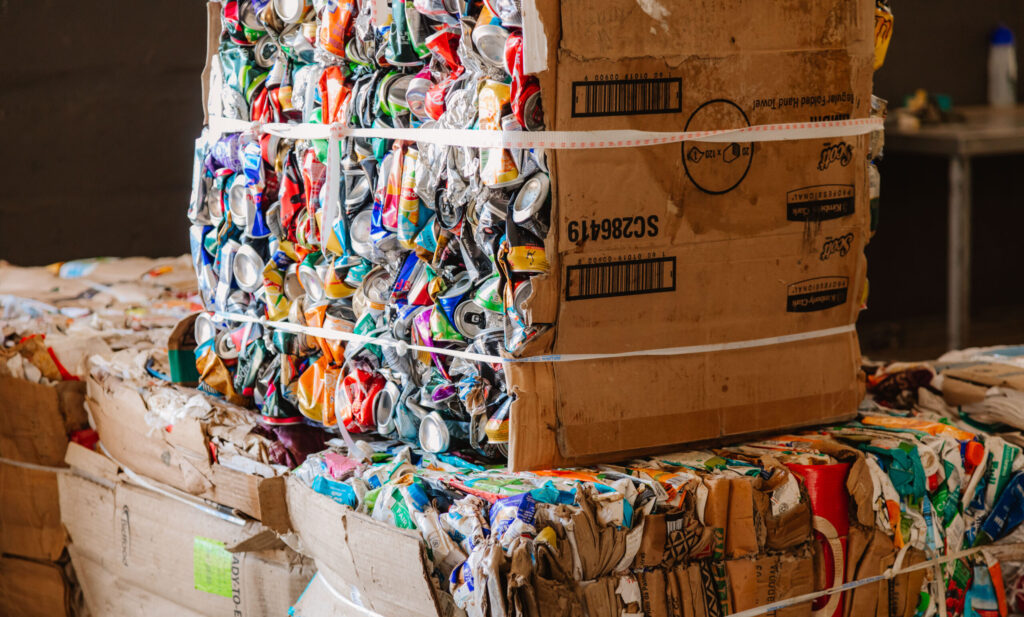
Waste Treatment and Recycling
Stellenbosch University is committed to reducing the amount of general waste that ends up in landfills. Between January and August 2021, the average amount of waste sent to landfills from Stellenbosch University campuses was less than 13%. All other waste is either recycled or reclaimed. The University’s IT department collects e-waste and responsibly disposes of any waste that cannot be reused or repaired. Stellenbosch University’s Zero Waste Strategy outlines the University’s specific goals regarding waste reduction
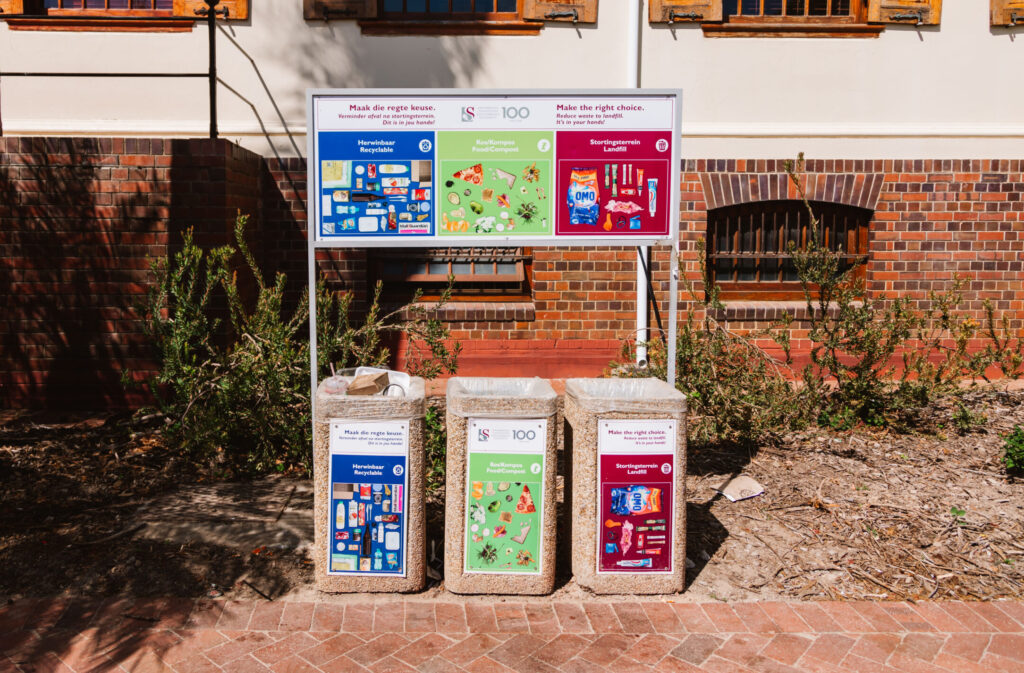
Food Waste
Stellenbosch University is committed to greatly reducing the amount of food waste sent to landfills. The University’s Zero Waste Strategy aims to reduce food waste sent to landfills by 95%. Currenlty more than 80% of the Food Waste is recycled: Food waste from kitchens and cafeterias on two Stellenbosch University campuses are treated and the resulting compost is used in University gardens. The University has a three-bin system on campus and one of these bins is for food waste. The bins are checked daily ad emptied if needed. Food waste is temporarily stored in the refuse room and is then sent to one of two places: the Stellenbosch University compost facility or Agriprotein, a company that produces animal feed from food waste.
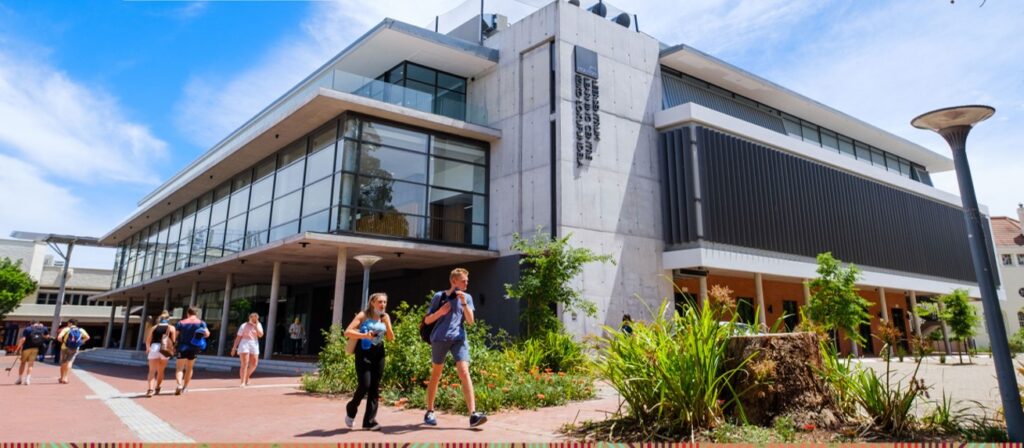
Responsible Purchasing
Stellenbosch University strives to ensure that all goods and service providers that are associated with the University are practicing responsible purchasing. Vendors in the Neelsie Student Centre are encouraged to seriously consider the materials they purchase to aid in the University’s drive to sustainability. The University provides a document about material purchasing to support vendors in making good decisions.
